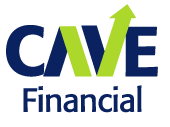Ditch the Double-Digit Deposit With Co-Ownership
Tue April 30th 2019
You can't or won't rely on the bank of mum and dad, but saving that 20% deposit seems like an impossible task, so where do you go from here? Co-ownership is an emerging trend in New Zealand's property market which is seeing would be home owners come together and secure a foot on the property ladder for a little as 5% deposit.
With home ownership at a 60 year low across New Zealand, there is no getting away from the fact that our housing market is failing so many.
Rental costs are on par with mortgage repayments across many areas of New Zealand, with so many would-be first time buyers reporting that it is not the ability to maintain monthly repayments, but the demand for high deposits preventing them from getting on the property ladder. But what if you could achieve home ownership with as little as a 5% deposit?
In the last 18 months, there has been an emerging trend in the property market thanks to co-ownership, with big players such as BNZ endorsing the scheme. There are a number of established and breakthrough companies also getting onboard, Miuwi in particular being dubbed ''the Tinder of property investing'' as a result of their savvy technique of using algorithms to match you with others in the same financial situation. Co-ownership can also be achieved through personal relationships, such as buying a house with friends or family members.
Buying your first home is a life-changing experience, but like many things, is won or lost in the preparation. Co-ownership is not yet widely recognised as a means of home ownership in New Zealand, and as a result some people have their doubts over it's credibility. Here, we take a look at the pro's and con's of co-ownership and what areas to give careful consideration.
What is co-ownership, and who is it aimed at?
Aimed at first-time buyers, co-ownership is the process in which you buy a property with the help of another party. You own a share of the property, usually around 75% but as a result you only need a smaller deposit - typically 5%. Over time, you have the option to buy a bigger share of the property, meaning eventually you could own 100% of your home.
Banks are partnering with organisations to offer this exciting opportunity to our first-time buyer market, however each bank will have their own criteria, much like they do if you were applying for a 'regular' home-loan. Factors such as income, residency status, and property type will be assessed by the bank - normally co-ownership is only available on new-build properties.
What are the benefits of co-ownership?
- Typically you only need a 5% deposit compared to the 20% required were you to buy a home on your own - meaning you aren't over committing yourself, and you can realise your home owner dreams sooner.
- Monthly repayments are typically less than they would be if you had a mortgage over the entire house (however keep in mind some organisations do charge a 'rent' for the part of the house they own)
- Over time you are able to increase the amount of the property you own, meaning you buy what you can afford now and the rest when you are able. This is known as 'staircasing'.
- You can use your KiwiSaver to contribute towards your deposit.
- Co-ownership can be achieved through many relationships including friends, family, or defacto partners meaning you don't have to wait for ''the one'' to come along!
- Sharing the asset means sharing the risk - borrowing from a bank and buying a house with someone else is less daunting than when you're doing it on your own.
What are the drawbacks of co-ownership?
- Not all lenders will offer mortgages for co-ownership
- Some schemes and lenders will limit co-ownership to new build properties only
- You may have to pay an occupancy charge (or 'rent') on the share you don't own
- You still have to pay 100% of rates and insurances despite what share of the property you own.
What else should I consider?
- Ensure you have a co-ownership agreement in place. This will act as a contract and can help avoid potential disputes in the future. An agreement should cover the share of each owner over the property and how this is recorded on the certificate of title, how each party is to contribute to maintenance or expenses, and process by which party may sell their share of the property in the future.
- Make sure you know the implications on each party should one owner default on mortgage repayments.
- People's circumstances change over time - what would happen if one owner wanted to move someone else into the property in the future?
- Just as when you buy any property, it's important to consider how you would keep up your mortgage repayments if you were not able to work, or what would happen to your share of the property if you were to pass away. Life Insurance, Trauma Insurance and Income Protection can prove invaluable in these circumstances.
- Speak to a professional, in particular a property lawyer, early on in the process! You may come across terms such as 'joint ownership' or 'tenancy in common' - these are not the same thing and each one has a different impact on what happens to your share of the property if you pass away.
How can Cave Financial help you?
As a mortgage broker, we can negotiate rates and terms with lenders. We understand the conditions and clauses in mortgage offers and will be able to talk you through these and ensure they're fair and manageable. We can also guide you through the relevant insurances you will need as a homeowner, such as Income Protection, and Home & Contents Insurance. Furthermore, as an established company ourselves, we have built up great relationships with conveyancers and will point you in the right direction to trusted specialist lawyers.
Contact or email us today to a free consultation on how co-ownership could work for you.

Need our help?
We're here to answer your questions.
service@cavefinancial.co.nz
09 302 7310
1D Roberta Avenue
Glendowie
Auckland 1071
New Zealand



